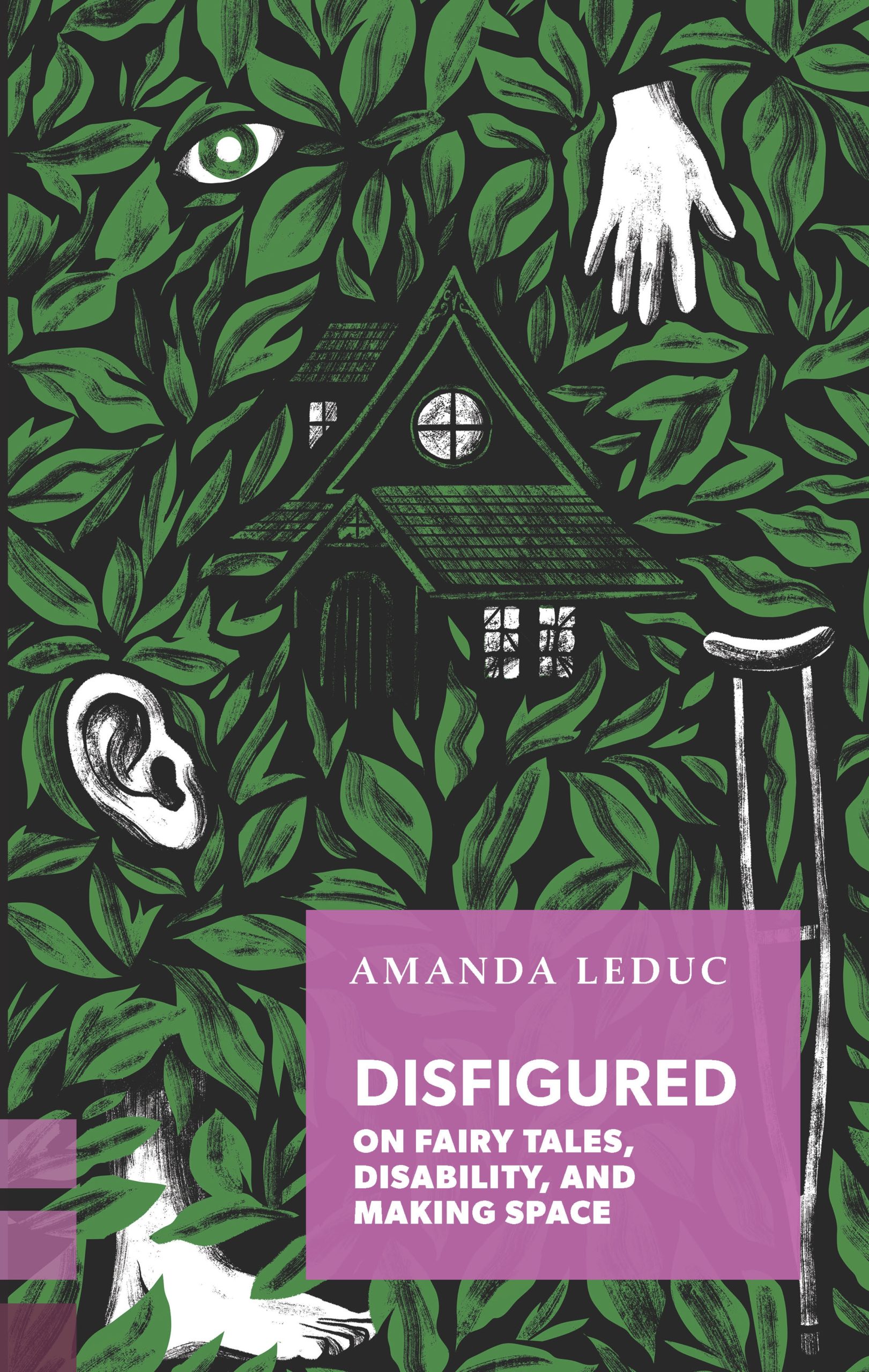
Disfigured: On Fairy Tales, Disability, and Making Space
Amanda Leduc, Coach House
Women spinning straw into gold, houses made of gingerbread, frogs turning into princes — the earliest stories our little baby ears hear require us to suspend our disbelief. The point isn’t to be factual; it’s to teach us something about morality — how good people supposedly behave, and how bad people supposedly deserve to be punished. But why is it that we can so easily believe in mermaids, but the thought of a hero (not a villain) with a disabled or divergent body feels so radical? What kind of lesson are we teaching if the only time we see disabled bodies in stories is when they’re cast as villains or characters of little consequence? Amanda Leduc tackles the unapologetic ableism of fairy tales head-on in Disfigured, dissecting the stories we tell ourselves and how they’ve shaped our expectations of disability. She powerfully weaves in her own personal experience with mild cerebral palsy and spastic hemiplegia, grounding her ruminations in real life and bodies. It’s making space in a way that perhaps we hadn’t considered, showing us “new ways to celebrate the magic of all bodies.”
